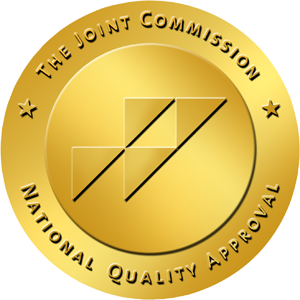Oral Nutritional Supplements and Therapy to Combat Malnutrition
 March is National Nutrition Month, a time to focus on making informed food choices and develop healthy eating and physical activity habits. However, for patients who are malnourished, fighting an infection or healing and recovering from hospitalization, a nutrition intervention strategy can aid in achieving daily nutritional intake goals.
March is National Nutrition Month, a time to focus on making informed food choices and develop healthy eating and physical activity habits. However, for patients who are malnourished, fighting an infection or healing and recovering from hospitalization, a nutrition intervention strategy can aid in achieving daily nutritional intake goals.
Carmichael’s offers a diverse variety of oral and enteral nutritional products, including feeding pumps, kits and supplies. Products are usually hand-delivered or shipped to patients at their homes and to non-hospital institutions.
Oral Nutritional Supplements
Oral nutritional supplements are used in addition to normal food for special medical purposes. They benefit older adults and patients with decreased albumin (protein) levels, low appetite, poor food intake and those with or at risk of malnutrition. Oral nutritional supplements also increase a patient’s ability to fight infection, decreasing hospitalization and improving healing and recovery times.
Carmichael’s offers nutritional supplements in a variety of flavors and forms. The large selection of products we supply ensure better compliance and tolerance and help reduce the chance of taste fatigue. Our oral nutritional supplements service line is accredited by The Joint Commission, and our inventory includes, but is not limited to, the following products:
- Milk-based beverages
- Juice-based beverages
- Clear liquid beverages
- Puddings
- Protein powders
Oral nutritional supplements may be purchased by contacting a Carmichael’s representative. Products will be shipped directly to your residence from our in-house UPS station within one to three days.
Enteral Nutrition
Enteral nutrition, or tube feeding, delivers food directly to a patient’s stomach or small intestine when the patient is unable to consume enough food to get the nutrients the body needs and to maintain ideal body weight and optimal health. The patient is fed a liquid, medically nutritious formula instead of solid food.
Feeding tube options include:
- Feeding tube through the nose.A doctor may recommend inserting a tube through the nose and into the stomach or small intestine if it is needed for a month or less.
- Feeding tube through the skin on the abdomen.A doctor may recommend a procedure to place a tube through the skin on the abdomen and into the stomach for long-term tube feeding.
Selection of a feeding tube method depends on each patient’s individual situation.
Total Parenteral Nutrition (TPN)
Parenteral nutrition, often called total parenteral nutrition (TPN), aids patients whose digestive systems either cannot absorb or cannot receive solid or liquid food by mouth. This type of treatment corrects or prevents malnutrition. Parenteral nutrition provides liquid nutrients, including carbohydrates, proteins, fats, vitamins, minerals and electrolytes through a vein (intravenously).
When used outside of a hospital setting, TPN therapy is called home parenteral nutrition and may be required for weeks, months, or for life in some cases. TPN is commonly used for the following disease states:
- Pancreatitis
- Crohn’s disease or ulcerative colitis
- Bowel obstruction
- Short bowel syndrome
Intradialytic Parenteral Nutrition (IDPN)
Intradialytic parenteral nutrition (IDPN) therapy is a form of partial parenteral nutrition administered during regularly scheduled dialysis sessions. Patients on dialysis are likely to develop malnutrition, low protein levels, weight loss and muscle loss. IDPN therapy provides protein and calories for patients who meet certain criteria to receive this type of therapy. Oral supplementation is usually attempted prior to IV nutritional support. Benefits of IDPN therapy include:
- Improvement in patient’s appetite, strength and overall well-being
- Replacement of nutrients lost during the dialysis process
- Increase in dry body weight
- Increase in serum albumin levels
- Decrease in overall hospitalization rates
- Improvement in wound healing outcomes
Services
Carmichael’s team of licensed pharmacists and technicians work with physicians, nutritionists and caregivers to meet the individual nutritional needs of patients through direct delivery of products and equipment, including those that require refrigeration for proper storage of IDPNs, and 24 hours a day on-call service. We serve private homes, nursing homes, hospitals and group homes – in rural areas, too.
Carmichael’s professionals have hospital and long-term care experience in advising, configuring and assisting healthcare providers with the enteral, TPN and IDPN qualification and therapy processes. Carmichael’s experienced staff work closely with primary caregivers to ensure that individual patients obtain the appropriate nutritional intake during treatment. Our highly trained staff make it easier for home health agencies, physicians and, most importantly, patients to transition into a stable home care environment.
Carmichael’s helps to make the process easier. We can provide insurance coverage information and arrange for therapy. With a physician’s qualifying referral, Carmichael’s can bill Medicaid, Medicare and the majority of private insurance companies for a patient.
Please contact a Carmichael’s representative to discuss any oral nutritional supplements or nutrition therapy needs, to request additional information or to check your insurance or other available coverage.




 Accredited/Certified by The Joint Commission
Accredited/Certified by The Joint Commission